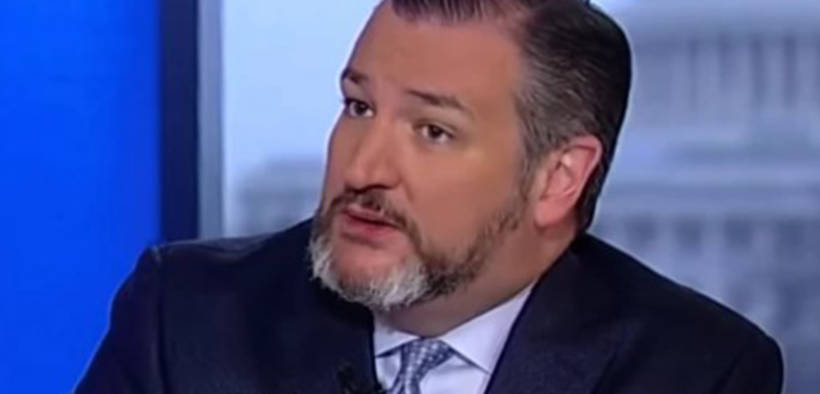Ted Cruz Wants a Criminal Investigation of Twitter for ‘Blatant and Willful’ Violation of Iran Sanctions

Cruz’ call for an investigation into Twitter is the latest in a month of political turmoil for the company.
Sen. Ted Cruz, R–Texas, formally asked the federal government to investigate Twitter on Friday. Cruz alleged the social media giant violated the International Emergency and Economic Powers Act and Executive Order 13876, which restored sanctions on Iran in July, Axios reported.
‘Willfully and Openly’ Violating the Law
Cruz asked US Attorney General William Barr and Treasury Secretary Steve Mnuchin to specifically investigate Twitter for allowing Iranian leaders to operate social media accounts.
“I wrote to Twitter before writing to you because I believe that the primary goal of IEEPA and sanctions law should be to change the behavior of designated individuals and regimes, not American companies,” Cruz wrote to Barr and Mnuchin. “But when a company willfully and openly violates the law after receiving formal notice that it is unlawfully supporting designated individuals, “the federal government should take action.”
Cruz alleged Khamenei and Zarif have tweeted “anti-American disinformation and conspiracy theories, not authoritative health information” about the Covid-19 virus, CBS News reported.
On May 13, Khamenei tweeted, “Since there is some evidence that this may be a ‘#BiologicalAttack,’ the establishment of this Base in the Armed Forces for confronting the #Coronavirus may also be regarded as a biological defense exercise & add to our national sovereignty & power. /3”
Khamenei was also critical of the US response to the virus, saying the West had ample time to prepare for it and therefore should have no excuse for high death tolls.
“The Department of Treasury and the Department of Justice should investigate what appears to be Twitter’s blatant and willful violation of IEEPA and E.O. 13876 by providing services to [Supreme Leader Ali] Khamenei, [Foreign Minister Mohammad] Zarif, and other designated Iranian entities, and, to the extent appropriate, enforce any violation through sanctions and by seeking civil and criminal penalties.”
In Trump’s executive order on Iran, Khamenei was singled out as a sanctioned individual. Furthermore, the order gave Mnuchin and Secretary of State Mike Pompeo to sanction other Iranian officials. Section 4 of the executive order forbids “the making of any contribution or provision of funds, goods, or services by, to, or for the benefit of any person whose property and interests in property are blocked pursuant to this order.”
Exempt or Not?
Cruz’ letter is the second time this year he has expressed concern about Iranian officials on Twitter. In February, he joined Senators Marsha Blackburn, R–Tenn., Marco Rubio, R–Fla., and Tom Cotton, R–Ariz. in sending a letter to Twitter CEO Jack Dorsey. Vijaya Gadde, Twitter’s lead legal counsel, responded in April saying that the company’s communication service “is broadly exempted from OFAC (Office of Foreign Assets Control) sanction prohibitions.”
Furthermore, Twitter responded that it is “critically important during this unprecedented health emergency” and that officials can leverage the platform to quickly communicate with their constituents.
In his letter to Barr and Mnuchin, Cruz denied that Twitter is exempted from Iranian sanctions by citing an OFAC document outlining restrictions on services, software, and hardware for communications. General License D-1 reads “The exportation, reexportation, or provision, directly or indirectly, of the services, software, or hardware specified in paragraph (a) to any person whose property and interests in property are blocked pursuant to any part of 31 C.F.R. chapter V.”
Busy Month for Twitter
Cruz’ call for an investigation into Twitter is the latest in a month of political turmoil for the company. At the beginning of the month, US President Donald Trump alleged MSNBC anchor Joe Scarborough murdered his aide, Lori Klausutis, while working as a US representative. The company denied calls to censor or remove the president’s tweets by Scarborough and Klausitus’ widower.
This week, the company made headlines again when it placed fact-checking labels on two of Trump’s tweets regarding vote-by-mail. Trump responded by signing an executive order in an attempt to reinterpret Section 230 of the Communications Decency Act that provides broad legal protections for websites that host user-submitted content, CNN reported.
Finally, on Thursday night, the president tweeted that “when the looting starts, the shooting starts,” in reference to riots in Minneapolis over the murder of George Floyd while in police custody. Twitter applied a warning label on the president’s tweet, prompting users to click to reveal its contents, but left it posted for “the public interest.”
Ajit Pai, chairman of the Federal Communications Commisson, rebuked the social media company for choosing to censor Trump, but not Khamenei who has been a vocal critic of Israel.
Serious question for @Twitter: Do these tweets from Supreme Leader of Iran @khamenei_ir violate “Twitter Rules about glorifying violence”?” Pai asked with a screenshot of four tweets from the Iranian supreme leader.











